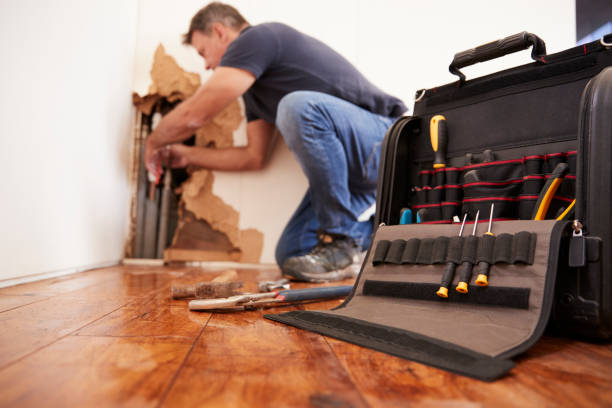Plumbing issues can be a homeowner’s nightmare, causing inconvenience, property damage, and significant repair costs if not addressed promptly. Whether you’re a new homeowner or have lived in your house for years, being vigilant about spotting plumbing problems early can save you from headaches. In this article, we’ll discuss some key signs to look out for that may indicate plumbing troubles, helping you catch issues before they escalate.
Water Leaks
Water leaks are one of the most common plumbing problems and can occur anywhere in your home, from faucets and toilets to hidden pipes behind walls. Look for signs of water damage, such as water stains on walls or ceilings, dampness or mold growth, and a musty odor. Even small leaks can lead to significant water wastage and structural damage over time, so addressing them promptly is crucial.
To detect leaks, periodically check under sinks, around toilets, and behind appliances like washing machines and dishwashers for any signs of moisture. Pay attention to your water bill as well; a sudden increase in water usage without a corresponding change in your household habits could indicate a hidden leak.
Low Water Pressure
Low water pressure can be frustrating, making it difficult to shower, wash dishes, or fill a glass of water quickly. It’s often caused by mineral buildup or sediment accumulation in pipes, which restricts water flow. In some cases, low water pressure may also indicate a more serious problem, such as a hidden leak or a malfunctioning pressure regulator.
If you notice a sudden drop in water pressure throughout your home, check for any visible leaks or blockages in your plumbing fixtures. If you can’t identify the cause, it’s best to call a licensed plumber to conduct a thorough inspection and diagnose the issue.
Slow Draining Fixtures
A slow-draining sink, shower, or bathtub is annoying and a potential sign of a clogged drain. Over time, hair, soap scum, grease, and other debris can accumulate in pipes, impeding the flow of water and leading to backups and foul odors. While minor clogs can often be cleared with a plunger or drain snake, recurring or persistent blockages may require professional attention.
To prevent clogs, avoid pouring grease or coffee grounds down the drain, use a hair catcher in the shower, and periodically flush drains with hot water and vinegar to dissolve buildup. If you notice multiple fixtures draining slowly or gurgling sounds coming from your pipes, it’s time to call a plumber to assess the situation.
Unusual Sounds
Unusual sounds from your plumbing system, such as banging, rattling, or whistling, could indicate various issues warrant investigation. Banging or hammering noises, known as water hammer, are often caused by sudden changes in water pressure and can damage pipes over time if left unchecked. Rattling or clanking sounds may indicate loose or damaged pipe fittings, while whistling noises could indicate a faulty valve or worn-out washer.
If you hear any of these sounds, try to locate their source and determine whether they occur consistently or only intermittently. While some noises may be harmless, others could indicate underlying problems that require professional attention to prevent further damage.
Foul Odors
Foul odors emanating from drains or sewage pipes are unpleasant and a potential health hazard. These odors are often caused by a buildup of organic matter in drains or sewer lines, such as food scraps, hair, or grease. Sometimes, they indicate a more serious issue, such as a broken or damaged sewer vent pipe or a sewage backup.
If you notice persistent foul odors in your home, clean your drains using baking soda, vinegar, and hot water to eliminate any organic buildup. If the smell persists, or if you notice other signs of sewage problems, such as slow drains or gurgling toilets, contact a plumber immediately to prevent contamination and damage to your home.
Conclusion
Proactively spotting plumbing problems early can save you time, money, and frustration in the long run. You can identify issues before they escalate into major emergencies by noticing water leaks, low water pressure, slow-draining fixtures, unusual sounds, and foul odors. Remember, it’s always best to consult a professional plumber to diagnose and address plumbing troubles when in doubt effectively. Regular maintenance and prompt repairs can keep your plumbing system running smoothly and avoid costly repairs.
